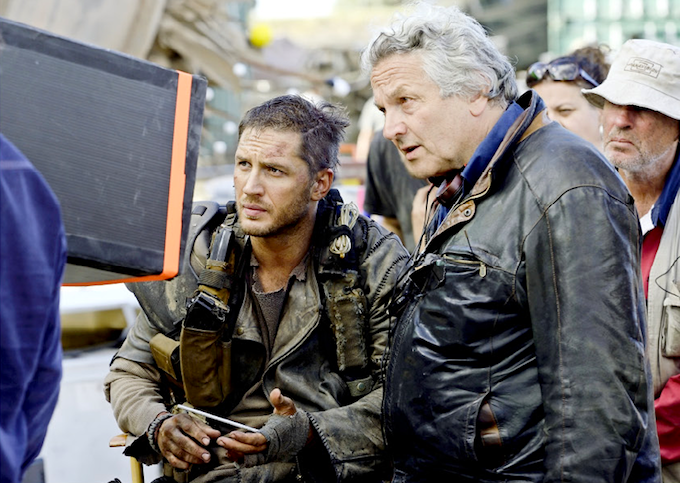 Rolling into Oscar weekend with ten nominations, George Miller‘s "Mad Max: Fury Road" continues to be the action movie that has people talking about the substance that goes far beyond the spectacle that’s up on screen. In particular, the film has been championed for its feminist undertone. However in a new conversation with NPR, Miller reveals that it was the ferocious story which came first, and the thematic elements followed.
Rolling into Oscar weekend with ten nominations, George Miller‘s "Mad Max: Fury Road" continues to be the action movie that has people talking about the substance that goes far beyond the spectacle that’s up on screen. In particular, the film has been championed for its feminist undertone. However in a new conversation with NPR, Miller reveals that it was the ferocious story which came first, and the thematic elements followed.
READ MORE: Quentin Tarantino Says ‘Mad Max: Fury Road’ Was The Best Movie He Saw in 2015
"[It’s] not overtly [feminist]. I was very interested in the character and in the way that the Max stories are told — basically they’re allegorical stories in the same way that the classic Western was that. Max is a character who gets swept up into this story who is that sort of wanderer in the wasteland, looking for some sense of meaning in a very stark world and he gets caught up in their story and because ‘the MacGuffin,’ as Hitchcock used to say, the thing that’s in conflict is human and female, it just evolved — the characters go, they take you along in the story and that’s sort of the sense that she was somehow a really interesting action hero female just arose organically out of the story," he explained. "The feminist notions of the movie were the same, it was never the first agenda of the film, it was always story-driven and the rest followed."
That should be no surprise, as the best screenwriting allows the story and its themes to be discovered, rather than front-loaded, which can leave a picture feeling didactic, rather than authentic. Part of that latter journey for Miller involved bringing in "Vagina Monologues" playwright, Eve Ensler.
"It occurred to me that we needed somebody to really help the female actors find a way into their characters and their world, because everybody in this story, except Immortan Joe, is in some way a commodity… As it happened, I was listening to the radio down in Australia and Eve [Ensler], who is extraordinary in the work she does for human rights in Africa… she just happened to be in the Republic of Congo around about the time we were in Namibia while we were preparing to shoot the movie," Miller said. "And she gave us a week in the middle of a very busy schedule and she came down and she ran wonderful workshops — a lot of them were quite intimate with just the five girls, and by osmosis it crept into the movie. I’m quite certain of that. … A sense that this story is one that has been fairly constant throughout history, meaning that women and indeed other human beings, have been basically the goods and chattels of the powerful."
It’s an engaging talk with Miller, and you can listen to the whole thing below.

